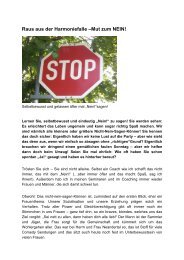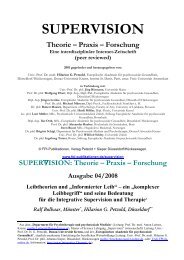Ilia Chavchavadze - brainGuide
Ilia Chavchavadze - brainGuide
Ilia Chavchavadze - brainGuide
You also want an ePaper? Increase the reach of your titles
YUMPU automatically turns print PDFs into web optimized ePapers that Google loves.
II. The aim of democratic state<br />
menon of demographic nature: The organizing of society as a political<br />
construction is caused by the increase of population. The purely objec-<br />
tive unrealizability of direct social self-government resp. primitive artifi-<br />
cial (conscious) organization in a society with the increased population<br />
gives rise to the state, as to the specific mechanism of qualitatively higher<br />
creating and regulating of social relations. In other words, the replacement<br />
of the initial social power by the political one is here the only way to<br />
ensure the self-preservation of society resp. to avoid its infinite decomposition,<br />
which on its part demands the recourse to the above-discussed conception<br />
of I. <strong>Chavchavadze</strong>, where the social unity is regarded as a basic<br />
reflection of „corporal and spiritual nature“ of man.<br />
II. The aim of democratic state. For building democratic society,<br />
I. <strong>Chavchavadze</strong>, first of all, pays great attention to customary law, as to<br />
the expressive source of people’s will. The custom, as he says, is the<br />
„same faith, same law for people“, which „always is the true result of<br />
life’s need and always is the steady medicine of this need“. According to<br />
this, I. <strong>Chavchavadze</strong> clearly demands that where it would be possible the<br />
legal norms must be based on the customary law, by which the legislation<br />
would be maximally adapted to the interests of people; and it is naturally<br />
the highest purpose of each democratic system.<br />
A special attention is paid in the work to the problem of natural justice,<br />
I. <strong>Chavchavadze</strong>’s understanding of which, first of all, „has nothing<br />
in common with the theory of natural law“, or rather we have here to do<br />
with two contrary points of view: I. <strong>Chavchavadze</strong> submits the notion of<br />
natural justice to people’s customs, common traditions and not vice<br />
versa. In the work is also pointed out the difference of consequences resulting<br />
from it; at the same time, there is accentuated in the latter regard<br />
the conformity between the views of Voltaire and I. <strong>Chavchavadze</strong>.<br />
As the above-presented analysis of the origin of the state demonstrates,<br />
I. <strong>Chavchavadze</strong> places the given factors in the service of achieving<br />
of social prosperity. Hegel sees the aim of the state in the same fact,<br />
129
















